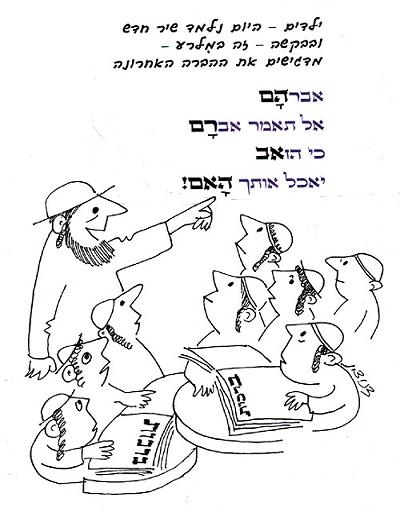
In the Torah it is related that G-d changed Abram’s name to Abraham: “No longer shall your name be called Abram, but your name shall be Abraham” (Genesis 17:5). One of the sages learned from this verse that one is forbidden to call Abraham Abram, and that one who does call him Abram transgresses a Torah prohibition and violates a positive divine commandment to call him Abraham. A different sage learned that one who calls Abraham Abram violates a negative commandment, for there is a command not to call him Abram. The scholars asked: If so, if the very change of name becomes a command and a prohibition, it should also be forbidden to call Sarah “Sarai,” for it is written “Then God said to Abraham, ‘As for Sarai your wife, you shall not call her name Sarai, but Sarah shall be her name'” (Genesis 17:15). Answer: G-d only asked Abraham not to call her Sarai and call her Sarah instead, but the rest of the world was permitted to also call her Sarai. The scholars went on to ask: If so, it should be forbidden to call our forefather Jacob by the name Jacob, calling him only “Israel,” for it is written “And He said, ‘Your name shall no longer be called Jacob, but Israel'” (Genesis 32:29). Answer: In the continuing saga of Jacob’s life G-d Himself calls him Jacob, meaning that we can also call him Jacob. It is written “Then God spoke to Israel in the visions of the night, and said, ‘Jacob, Jacob!’ And he said, ‘Here I am'” (Genesis 46:2). One of the scholars, Yossi the son of Abin, asked: If one is forbidden to call Abraham Abram, why does Nehemiah call him Abram? It is written “You are the Lord G-d who chose Abram and brought him out of Ur of the Chaldeans and gave him the name Abraham” (Nehemiah 9:7). Answer: The prophet is relating the story of Abraham’s life, that at first he was called Abram and then his name was changed to Abraham. But calling him Abram after his name was changed to Abraham is forbidden.
(Babylonian Talmud, Tractate Berachot 13a)
